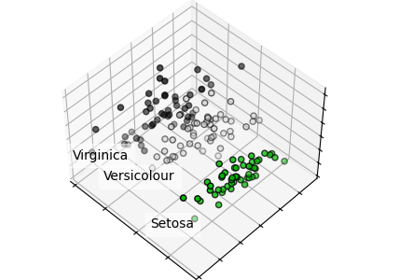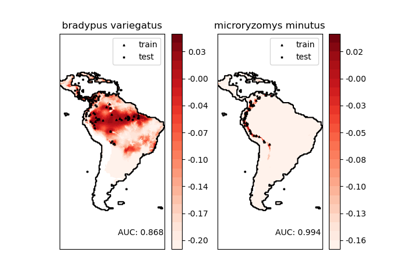Bunch#
- class sklearn.utils.Bunch(**kwargs)[source]#
Container object exposing keys as attributes.
Bunch objects are sometimes used as an output for functions and methods. They extend dictionaries by enabling values to be accessed by key,
bunch["value_key"], or by an attribute,bunch.value_key.Examples
>>> from sklearn.utils import Bunch >>> b = Bunch(a=1, b=2) >>> b['b'] 2 >>> b.b 2 >>> b.a = 3 >>> b['a'] 3 >>> b.c = 6 >>> b['c'] 6
- clear() None. Remove all items from D.#
- copy() a shallow copy of D#
- classmethod fromkeys(iterable, value=None, /)#
Create a new dictionary with keys from iterable and values set to value.
- get(key, default=None, /)#
Return the value for key if key is in the dictionary, else default.
- items() a set-like object providing a view on D's items#
- keys() a set-like object providing a view on D's keys#
- pop(key, default=<unrepresentable>, /)#
If the key is not found, return the default if given; otherwise, raise a KeyError.
- popitem(/)#
Remove and return a (key, value) pair as a 2-tuple.
Pairs are returned in LIFO (last-in, first-out) order. Raises KeyError if the dict is empty.
- setdefault(key, default=None, /)#
Insert key with a value of default if key is not in the dictionary.
Return the value for key if key is in the dictionary, else default.
- update([E, ]**F) None. Update D from dict/iterable E and F.#
If E is present and has a .keys() method, then does: for k in E: D[k] = E[k] If E is present and lacks a .keys() method, then does: for k, v in E: D[k] = v In either case, this is followed by: for k in F: D[k] = F[k]
- values() an object providing a view on D's values#
Gallery examples#

Principal Component Analysis (PCA) on Iris Dataset
